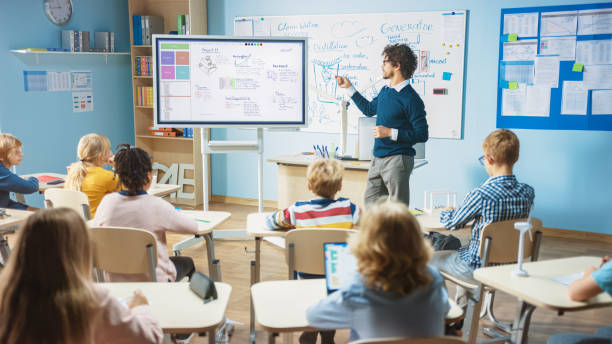Master Primary Science Concepts with Quality Tuition in Singapore
Discover the Vital Advantages of Comprehending Key Science for Young Students
The importance of main scientific research education for young learners prolongs much past mere knowledge purchase; it serves as an essential column in creating important skills such as important thinking, analytic, and creativity. Engaging with scientific principles through inquiry-based and interactive tasks not just grows inquisitiveness but likewise lays the foundation for resistant, certain students. As we explore these advantages even more, it ends up being clear that the ramifications for future scholastic and personal development are extensive. Nonetheless, what certain techniques can teachers utilize to make best use of these benefits?
Enhancing Important Believing Skills
Cultivating vital assuming skills in young students is necessary for their cognitive advancement and future scholastic success. Important reasoning allows youngsters to examine information, examine evidence, and make informed choices, which are important abilities in today's information-rich society. By involving in clinical inquiry, young students can enhance these abilities as they explore ideas through monitoring, testing, and thinking.
In main scientific research education and learning, teachers can promote crucial reasoning by urging students to ask questions, create hypotheses, and perform experiments. This hands-on technique allows children to exercise problem-solving and develop rational reasoning skills. When students investigate the residential properties of products or the concepts of activity, they find out to analyze their searchings for seriously and attract conclusions based on proof.
In addition, conversations and joint projects can promote crucial thinking by offering opportunities for learners to express their ideas, obstacle presumptions, and think about diverse point of views. By creating a supportive environment that values questions and representation, teachers can nurture essential believing skills that equip young learners to become long-lasting students and independent thinkers. Ultimately, enhancing these abilities lays a robust structure for their future scholastic ventures and personal development.
Promoting Curiosity and Expedition

Primary scientific research education and learning provides an organized atmosphere where young students can check out numerous phenomena via hands-on experiments and observations. By permitting them to communicate with products and participate in inquiry-based understanding, teachers develop chances for children to develop hypotheses, evaluate their concepts, and draw final thoughts. Such experiences support a sense of marvel and excitement regarding scientific research.

Structure Self-confidence in Trouble Solving
Structure self-confidence in analytic is an important element of primary science education that empowers young learners to come close to obstacles with strength and imagination - primary science tuition Singapore. When youngsters are motivated to involve with clinical concepts via hands-on activities and inquiry-based knowing, they develop important skills in critical thinking and analysis. This process not only boosts their understanding of scientific concepts however likewise fosters a feeling of possession over their discovering
To develop self-confidence, teachers ought to develop a helpful atmosphere where errors are deemed possibilities for growth as opposed to failures. This encourages students to take threats and check out numerous services to troubles. By offering scaffolding and guidance, educators can assist students navigate intricate tasks, progressively enhancing their freedom in analytic circumstances.
Furthermore, collective discovering experiences, such as team jobs or experiments, can better boost pupils' self-confidence as they learn to articulate their ideas and pay attention to others' point of views. These communications nurture social skills and strengthen the idea that problem-solving is frequently a cumulative undertaking. Inevitably, growing self-confidence in analytical prepares young learners for future academic challenges and furnishes them with the tools required for lifelong learning.
Urging Creative Thinking and Technology
In the world of key scientific research education and learning, motivating creativity and innovation is essential for growing a vibrant understanding atmosphere. By fostering a society where young students try this out can explore concepts and experiment easily, teachers assist students create important believing skills and an interest for discovery. Creativity in science motivates children to ask inquiries, create hypotheses, and participate in hands-on activities that boost their imagination.
Incorporating flexible jobs and inquiry-based knowing into the curriculum permits students to share their special perspectives and solutions. For example, when entrusted with solving an issue pertaining to their atmosphere, students can conceptualize numerous techniques, resulting in creative outcomes that showcase their creativity. This not just deepens their understanding of scientific ideas however additionally infuses a sense of ownership over their discovering procedure.
Furthermore, innovative scientific research education nurtures partnership among peers, as trainees often share ideas and improve each other's insights - primary science tuition Singapore. This collaborative spirit promotes not only development however likewise crucial social skills. Thus, by prioritizing creativity and development in primary science education, we equip young students to assume seriously, accept difficulties, and imagine possibilities, laying a strong foundation for lifelong knowing and exploration
Preparing for Future Learning Challenges
Young students' capability to browse future understanding difficulties hinges on a solid foundation in key scientific research education. This foundational understanding equips trainees with critical assuming skills and a methodical approach to problem-solving, important for taking on intricate problems in an ever-evolving globe. Main science cultivates inquiry-based learning, urging trainees to ask questions, check out hypotheses, and involve in hands-on experiments.
As they develop these abilities, students end up being adept at examining data, identifying patterns, and drawing educated conclusions. Such proficiencies are important not just in scientific areas but additionally in technology, design, and mathematics (STEM), where interdisciplinary understanding is significantly important.
In addition, primary scientific research education and learning more info here cultivates a sense of interest and strength in young learners, enabling them to check out obstacles as opportunities for growth. As they run into and overcome challenges in their clinical expeditions, they build confidence in their capability to adjust and introduce.
Ultimately, a strong foundation in main scientific research not just prepares young students for scholastic pursuits but also furnishes them with the tools needed for long-lasting learning and versatility in a quickly altering worldwide landscape. By spending in main scientific research education and learning, we are purchasing the future possibility of our students.
Final Thought
Comprehending primary scientific research go to this website is important for young learners, as it promotes essential reasoning, curiosity, and creative thinking. Eventually, the advantages of main scientific research education prepare kids for future scholastic searches and instill long-lasting knowing behaviors necessary for thriving in an ever-evolving globe.
The significance of key science education for young students extends much past mere understanding procurement; it serves as an essential column in developing necessary skills such as crucial reasoning, analytic, and imagination. By producing an encouraging environment that values query and representation, educators can support crucial believing abilities that encourage young learners to become independent thinkers and long-lasting students. Hence, by prioritizing imagination and advancement in key scientific research education, we encourage young students to think critically, embrace challenges, and visualize possibilities, laying a solid foundation for lifelong knowing and exploration.
Young learners' capability to navigate future knowing difficulties hinges on a solid foundation in primary scientific research education and learning.Recognizing key scientific research is critical for young learners, as it promotes important reasoning, interest, and imagination.